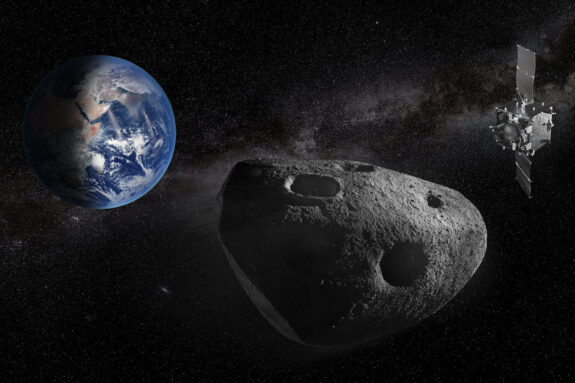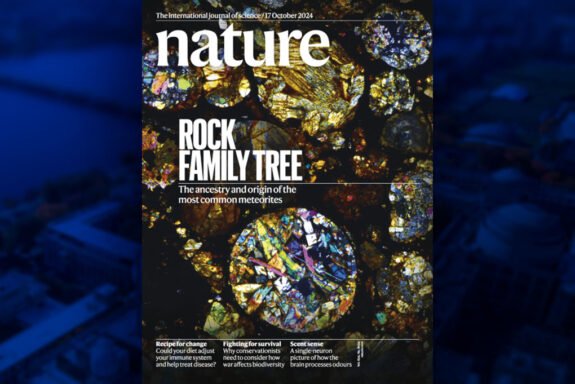
Richard Binzel
Faculty Post-Tenure, Planetary Science
Joint Appointment - AeroAstro
Assistants:
Leader in the study of asteroids and Pluto, inventor of the Torino Scale to categorize impact hazards associated with near-Earth objects.
Richard Binzel is one of the world’s leading scientists in the study of asteroids and Pluto. As the inventor of the Torino Scale, a method for categorizing the impact hazard associated with near-Earth objects (NEOs) such as asteroids and comets, his research includes the spectral characterization of asteroids posing a potential hazard to Earth, as well as those that may be most easily reachable by future robotic and human missions. His mapping efforts of Pluto in the 1980s revealed a diverse surface entreating for exploration, finally achieved in 2015 as a co-investigator on NASA’s New Horizons mission. Binzel is also a co-investigator on the NASA OSIRIS-REx asteroid sample return mission—whose payload was recently successfully recovered and opened by NASA for ongoing Earth-based analysis—having led the development of a student-built flight instrument, the Regolith X-ray Imaging Spectrograph (REXIS). He currently also works on the NASA Psyche and Lucy missions, as well as the future OSIRIS-APEX investigation of the asteroid Apophis.
Binzel earned his master’s and doctoral degrees in astronomy from the University of Texas, followed by a year at the Planetary Science Institute in Arizona, before joining the faculty at MIT in 1988. During his tenure at MIT, he published hundreds of papers, and won a number of awards, including the 1991 Harold C. Urey Prize in Planetary Science for his work on the evolution of the solar system and the origin of meteorites. Asteroid number 2873 bears his name, an honor bestowed by the International Astronomical Union in recognition of his contributions to the field. In 2017, Binzel was recognized by NASA with a Silver Achievement Award, the second highest award that can be bestowed on a civilian (non-government) scientist.
Key Awards & Honors
- 2017 • NASA Silver Achievement Medal, National Aeronautics and Space Administration
- 1999 • Fellow, American Association for the Advancement of Science
- 1994 • MacVicar Faculty Fellow for Teaching Excellence, MIT
- 1991 • H.C. Urey Prize, American Astronomical Society
- 1984 • Asteroid (2873) Binzel named, International Astronomical Union
Key Publications
-
Francesca E. DeMeo, Richard P. Binzel, Stephen M. Slivan, Schelte J. Bus, An extension of the Bus asteroid taxonomy into the near-infrared, Icarus, Volume 202, Issue 1, 160-180 (2009). DOI: 10.1016/j.icarus.2009.02.005
-
Richard P. Binzel, Shui Xu, Chips off of Asteroid 4 Vesta: Evidence for the Parent Body of Basaltic Achondrite Meteorites. Science, 186-191. (1993) DOI: 10.1126/science.260.5105.186
-
Schelte J. Bus, Richard P. Binzel, Phase II of the Small Main-Belt Asteroid Spectroscopic Survey: A Feature-Based Taxonomy, Icarus, Volume 158, Issue 1, 146-177 (2002). DOI: 10.1006/icar.2002.6856


